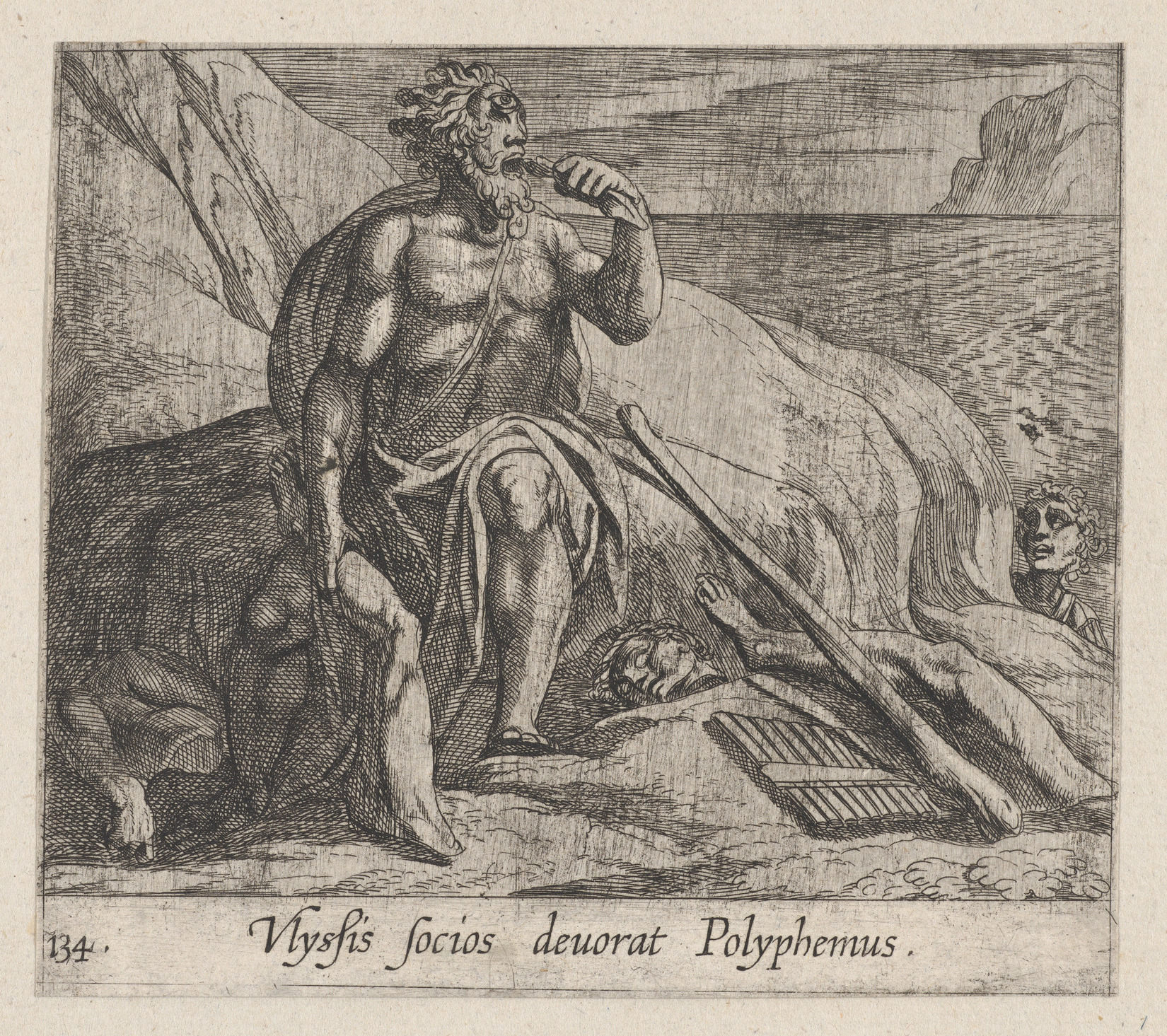Plate 134: Polyphemus Eating Ulysses' Men, as Achaemides Watches , from Ovid's 'Metamorphoses' by Antonio Tempesta 1606
"The Suda transmits another passage about Hierocles, taken from the same work by Damascius; it must have followed Photius' summary, which we have just quoted, fairly closely:
Hierocles' courage and magnanimous character was demonstrated by the misfortune that happened to him. For when he went up to Byzantium, he offended the party in power, was dragged into court, and was beaten up by the blows of men [cf. Aeschines, In Timarchum, 59]. Covered with blood, he plunged the cup of his hand into his own blood and sprinkled the judge with it, saying: "Here, Cyclops, drink this wine now that you have eaten human flesh" [= Homer, Od., 9, 347]. Condemned to exile, he later returned to Alexandria, where he studied traditional matters with his disciples."
This text shows us the attitude of the Pagan philosopher Hierocles during the persecution led by the Christians at Constantinople, a situation in which he kept his cool in a way Damascius found admirable. Damascius also notes with satisfaction that Hierocles, even after these bitter experiences, continued imperturbably to teach traditional - that is to say, Pagan - philosophy at Alexandria, without compromising. The Suda text on Hierocles ends as follows:
One may get an idea of the magnanimous wisdom of Hierocles by reading the treatises he wrote on the Golden Verses of the Pythagoreans and by numerous other books on providence."
-Studies on the Neoplatonist Hierocles by Ilsetraut Hadot, pages 2-3
 |
| Plate 134: Polyphemus Eating Ulysses' Men, as Achaemides Watches , from Ovid's 'Metamorphoses' by Antonio Tempesta 1606. |
Source:
https://www.metmuseum.org/art/collection/search/401167
Quote:
http://mc.dlib.nyu.edu/files/books/isaw_aphs000014/isaw_aphs000014_lo.pdf


Comments
Post a Comment